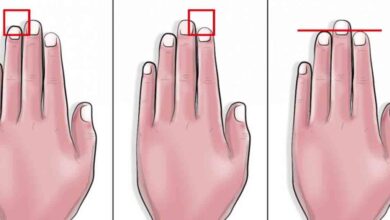How to keep mucus and phlegm at a healthy level
Learn what causes excess mucus, how to manage it naturally, and when to see a doctor for better respiratory health.
This thick, slimy substance plays a vital role in protecting your body—producing about a liter daily—but too much of it can be uncomfortable. Here’s how to reduce excess phlegm and breathe easier.
Phlegm might not be the most pleasant topic, but it’s an essential part of your respiratory system. It traps irritants like dust, bacteria, and allergens, keeping your airways clear. According to experts, your body produces about one liter of phlegm every day, which is enough to fill half a two-liter soda bottle!
When you’re healthy, phlegm works quietly in the background. But when you’re sick, it thickens and increases, making you feel congested. The good news? There are simple ways to reduce phlegm buildup and improve your breathing.
Stay hydrated
Drinking plenty of fluids is one of the easiest ways to thin out mucus. Water, herbal teas, and clear broths help loosen phlegm, making it easier to expel.
Why hydration helps:
- Thins mucus: Water dilutes thick phlegm, making it less sticky.
- Improves circulation: Staying hydrated supports overall respiratory health.
Pro tip: Aim to drink enough water so that your urine stays pale, says laryngologist Dr. Paul C. Bryson.
Try steam therapy
Inhaling steam can open up airways and loosen stubborn mucus.
How to do it:
- Boil water and pour it into a bowl.
- Add a few drops of eucalyptus or peppermint oil.
- Cover your head with a towel and inhale deeply for 10 minutes.
No time for a steam session? A hot shower works, too!
Gargle with salt water
A simple saltwater gargle can soothe your throat and help break down mucus.
Instructions:
- Dissolve ½ teaspoon of salt in a glass of warm water.
- Gargle for 30 seconds, ensuring the solution reaches the back of your throat.
- Spit it out and repeat several times a day.
Use over-the-counter remedies
If you need quick relief, medications like decongestants and expectorants can help:
- Decongestants shrink swollen nasal tissues, making it easier to breathe.
- Expectorants (like guaifenesin) thin mucus, helping you clear it out more easily.
Important: Always check with a doctor before taking medications, especially if you have other health conditions.
Try herbal remedies
For a natural approach, certain herbs can soothe the airways and promote mucus clearance.
Options to consider:
- Eucalyptus balm or essential oil in a diffuser helps loosen chest mucus.
- Thyme tea (boil fresh or dried thyme, strain, and enjoy) has natural antibacterial properties.
- Licorice root lozenges can reduce throat irritation.
Use a humidifier
Dry air can make mucus thick and sticky. A cool mist humidifier adds moisture to the air, keeping your throat and nasal passages hydrated.
Reminder: Clean the humidifier regularly to prevent mold and bacteria buildup.
Flush out irritants
Using a nasal irrigation device, like a neti pot, can flush out mucus, allergens, and irritants from your nasal passages. A saline rinse helps thin mucus and provides fast relief.
Keep your environment clean
Dust, pet dander, and other allergens can trigger excess mucus production. Keeping your home clean can help.
Cleaning checklist:
- Change air filters in heating and cooling systems.
- Vacuum carpets and upholstery regularly.
- Use an air purifier to reduce airborne irritants.
- Wash bed linens weekly in hot water.
Phlegm may not be the most glamorous subject, but it’s an essential part of your body’s defense system. While it helps protect your respiratory tract, too much of it can be uncomfortable. Luckily, these simple remedies—hydration, steam therapy, saltwater gargles, and natural solutions—can help keep phlegm in check.
Did you know phlegm plays such a crucial role in keeping you healthy? Let us know your thoughts! 🚀





